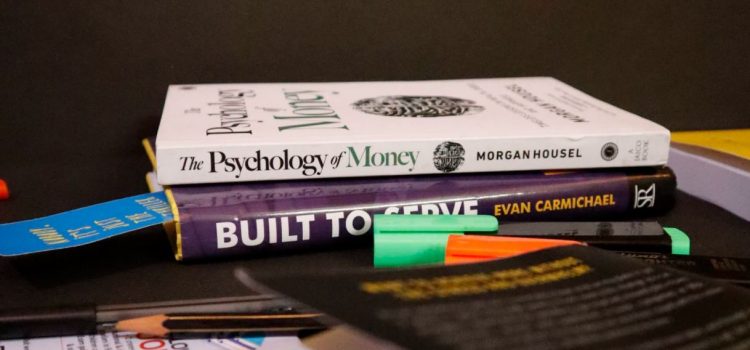

This article is an excerpt from the Shortform book guide to "The Psychology of Money" by Morgan Housel. Shortform has the world's best summaries and analyses of books you should be reading.
Like this article? Sign up for a free trial here .
Looking for quotes from The Psychology of Money? What is the secret to financial success?
Most of us assume financial success depends on education and intelligence. But according to Morgan Housel, the author of The Psychology of Money, the key to financial success lies in understanding human behavior.
Here’s a selection of passages highlighting some of the key ideas.
Quotes by Morgan Housel
Morgan Housel posits that when you understand how emotions and beliefs influence your financial decisions, you’ll make better financial decisions.
Here are some of the top The Psychology of Money quotes by Morgan Housel.
“Money’s greatest intrinsic value—and this can’t be overstated—is its ability to give you control over your time.”
Housel contends the true value of money is as follows: Money buys you control over time, which psychologists contend is the key driver of happiness. When you have control over your time, you can choose what to do and when to do it. Feeling like we control our lives is so essential, we rebel when we don’t feel it—a phenomenon known as “reactance:” People who feel they don’t have control won’t do things they want to do just to regain that sense of control.
“Spending money to show people how much money you have is the fastest way to have less money.”
Housel argues that people often covet status symbols because they want respect. When others admire your possessions, you assume that they’re admiring you. However, Housel contends, when people admire your status symbols, they barely notice you. Rather, they imagine how much other people would admire them if they owned that symbol.
For example, if you buy a mansion and notice delivery drivers gawking at you when they pull up, you imagine that they think, “This house is so nice. The owner must be so sophisticated—I should treat her with respect.” But in actuality, they’re looking only at the house—not you—and thinking, “That house is so nice. If I lived here, people would think I’m so sophisticated and treat me with respect.”
“Bill Gates once said, “Success is a lousy teacher. It seduces smart people into thinking they can’t lose.”
Housel suggests one reason we fail to become financially successful: We underestimate the role chance plays in our financial lives. For example, we forget Bill Gates was successful not just because he was intelligent but also because he got lucky: He was (literally) one in a million teenagers who had access to a school computer in 1968.
Housel contends our ignorance of chance is dangerous because many people try to gain wealth by imitating the most exceptionally successful people—but thanks to chance, copying what they did often doesn’t lead to success. As Housel notes, the more exceptional the story, the more likely luck played a bigger role in its outcome. So the more exceptional the story, the more unique it is and so the less likely you are to be able to learn lessons from it. Instead, Housel recommends that you pay attention to patterns, not people. If many wealthy people did Thing A to get wealthy and only one wealthy person did Thing B, it’s more probable doing Thing A will make you wealthy.
“Things that have never happened before happen all the time.”
Housel explains that many modern financial concepts have existed for an extremely brief time. For example, the market for cryptocurrency—decentralized, digitized currency—was valued at $1.49 billion in 2020, but cryptocurrency didn’t exist in a popular and usable fashion until 2009. Therefore, gleaning financial advice from what happened in the past is somewhat useless because the economic structures that exist are fundamentally different: Investing advice from 20 years ago doesn’t mention cryptocurrency because it didn’t exist yet. So if you rely too much on economic history to predict what’s going to happen next, you will likely fail and may struggle financially as a result.
“Compounding works best when you can give a plan years or decades to grow. This is true for not only savings but careers and relationships. Endurance is key.”
Housel explains that the longer you invest, the more money you make because returns compound—that is, they build on previous returns to make ever-increasing returns. Housel recommends that you take advantage of compounding by finding investments that return solid, consistent results over time. He argues that ultimately, this strategy will make you the most money.
He argues that because of the power of compounding, how long you invest is the most important factor determining your investment success—even more than other factors that seem intuitively important, like your annual returns. Housel illustrates this point with the stories of James Simons and Warren Buffett. Hedge fund executive James Simons is arguably the world’s best investor: Since 1988, his annual returns have compounded at 66%—three times the rate of Buffett’s investments. However, Buffett is 75% wealthier than Simons. This is because Simons only started achieving his 66% rate when he was 50, while Buffett has been earning 22% a year since he was 10 years old. Buffett is wealthier not because he’s a better investor, but because he’s been investing for much longer.

———End of Preview———
Like what you just read? Read the rest of the world's best book summary and analysis of Morgan Housel's "The Psychology of Money" at Shortform .
Here's what you'll find in our full The Psychology of Money summary :
- Why the key to financial success lies in understanding human behavior
- How to make better financial decisions
- How chance plays a bigger role in our financial lives than we think






